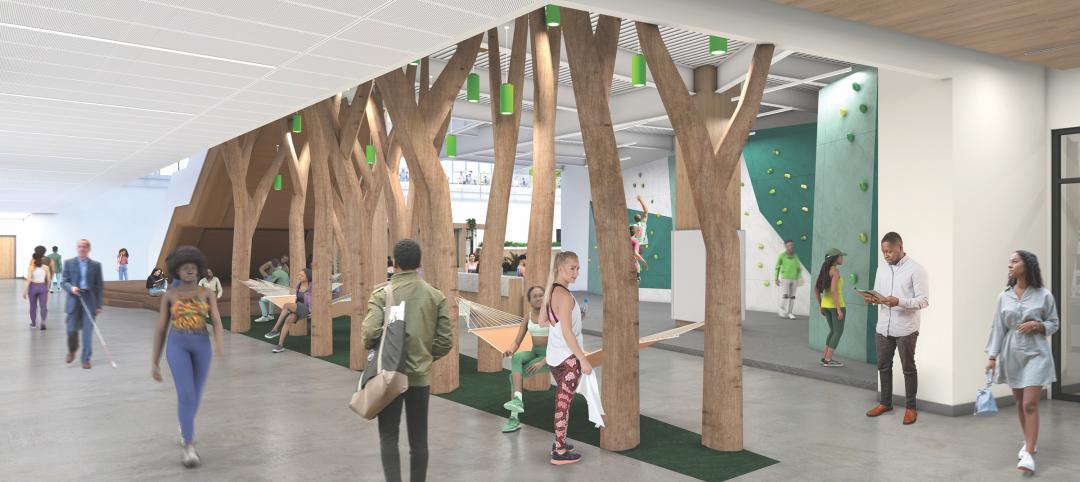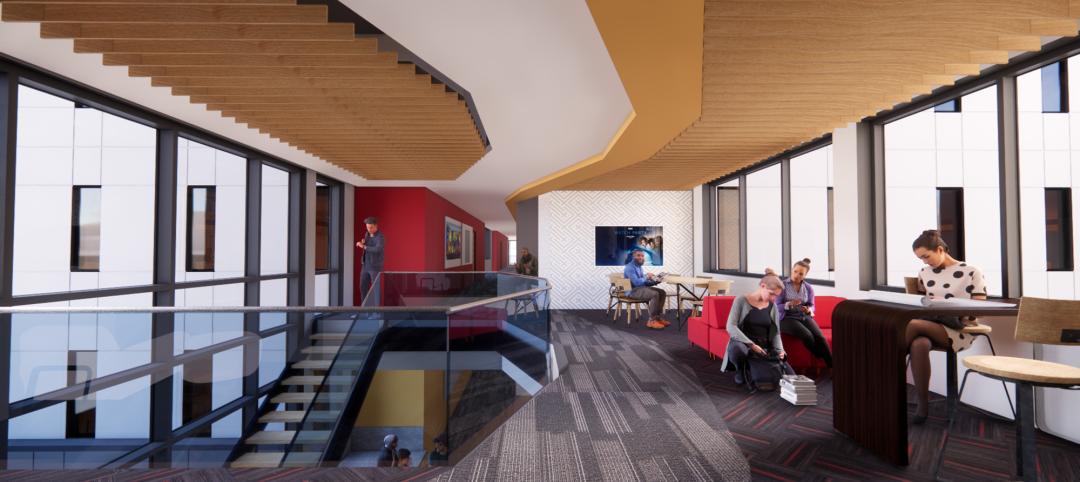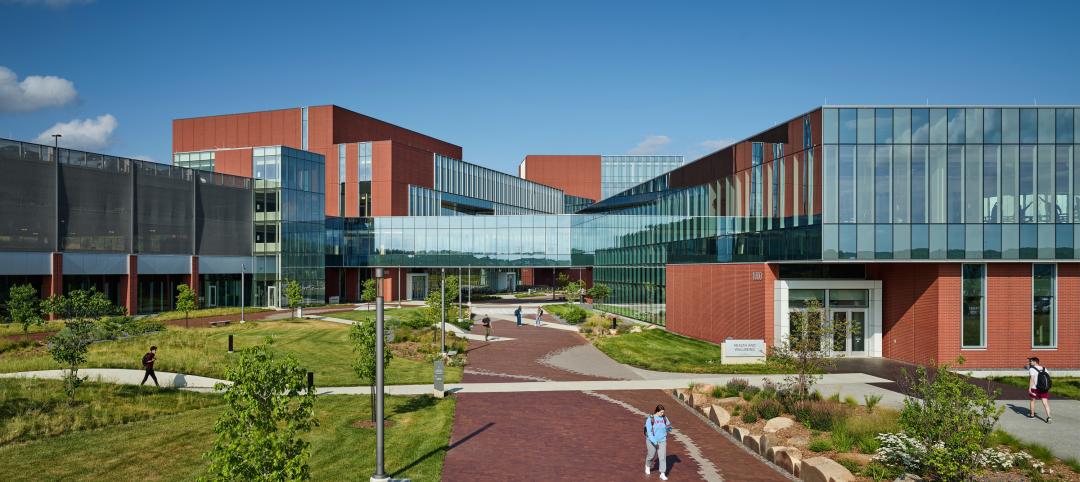 ,
,  ,
,  ,
, , and other social networking sites are changing the way AEC professionals and their firms promote themselves, recruit employees, and advertise their services. However, as Building Design+Construction’s survey on social networking reveals, professionals in the AEC industry are still curious—and cautiously optimistic—about working social media into their everyday work.
, and other social networking sites are changing the way AEC professionals and their firms promote themselves, recruit employees, and advertise their services. However, as Building Design+Construction’s survey on social networking reveals, professionals in the AEC industry are still curious—and cautiously optimistic—about working social media into their everyday work.
Here’s what a representative sample of your peers told us about their use of social media.
NETWORKING AND COMMUNICATING
Findings: More than half of respondents (53%) use social media for personal but not professional purposes, while 48% say they do use it for networking and communicating with others in their field. When it comes to marketing and publicity, however, only 28% say they turn to social media channels.
Opinions: On personal vs. professional use, opinions were black and white: Respondents either found real value in social media as a business tool or they didn’t—there was very little gray area.
On the positive side: “If you aren’t using social media you are behind. It’s where your clients are and you should be there too,” wrote one. “Connecting with people worldwide is definitely beneficial and is changing the face of my business,” and “It’s critical to my business this year and in the future,” commented others. “I think it’s great—it’s a business tool with a personal touch,” noted one respondent, while another said, “Social media tools are a great complement to business networking.”
Opinions on the other side were more blunt: “Total waste of time and energy,” wrote more than one. “More distracting than informative,” “irrelevant,” noted others. “I don’t think the AEC industry has figured out how to use social media for business purposes yet,” added another.
As for marketing to the AEC community via social media channels, the survey found that effective avenues are still being sorted out. One respondent wrote, “The AEC industry has such a long sales cycle—many times measured in years—that social media may not impact marketing and sales the way it purports to with consumer markets. There aren’t a lot of emotional purchases made in the AEC industry.” Another offered, “I have not yet found the right method for using social media for marketing.” On the positive side, one respondent stated, “I believe it’s a necessary and useful tool for marketing your business now.”


LINKEDIN VS. FACEBOOK
Findings: LinkedIn (58%) and Facebook (54%) were overwhelming favorites, according to our respondents. YouTube was a distant third (23%), while another 23% said they don’t use social media channels at all. When it comes to blogs, more than three-fourths (76%) said blogs don’t factor into their businesses.
Opinions: LinkedIn was viewed as a more business-oriented site attracting a more professional crowd. “LinkedIn is a good way to know more about someone than just what’s on their business card,” wrote one respondent. Another said, “LinkedIn is wonderful for new connections, but Facebook is too personal.” While Facebook did rank high in the survey, many echoed this respondent’s evaluation: “I think that Facebook is geared for personal and recreational use and not useful in business. Why would I waste time being a Facebook friend of a manufacturer? It seems irrelevant to me.”
As for blogs, the biggest problem respondents said they have is finding quality information. “Blogs can be useful, but are not always a reliable source,” wrote one respondent. Another called blogs “hit or miss.” One respondent pulled no punches: “Reading blogs and other ‘discussion’ panels leaves me thinking that many of the participants are close to illiterate.”


MOST AEC PROFESSIONALS ARE CASUAL USERS
Findings: For those who do use social media sites, their visits are infrequent, with only 20% saying they visit on a daily basis, and 19% visiting a few times a week. Another 32% say they rarely or never visit the various sites.
When AEC professionals do visit, it isn’t for very long. Almost half (47%) spend just a few minutes on a site. Another 18% say they spend 30 minutes or so, while only 6% say they spend more than an hour on the site during each visit.
Another reason AEC professionals don’t visit social media site: they can’t. A significant 61% of respondents report that their firms do not utilize social media channels.
Opinions: Several respondents reported that their employers went so far as to block access to all social media sites—even for legitimate business purposes. Some respondents also said their firms have problems navigating the professional/personal line on social sites. “It is very difficult to separate the firm’s ‘official message’ from those of select employees. This seems to be a problem on both Linkedin and Facebook,” wrote one concerned respondent.


Findings: Business and career networking (60%), checking in on what others in their field are doing (57%), and researching design and construction ideas and trends (49%) were the main reasons AEC professionals use social media. Others said they check in for product information (33%), industry trends (33%), and business and career advice and information (33%).
Those who use social media say results are still hit or miss, with 39% of respondents stating they had had no significant results from these channels. For those reporting successes, 42% said they’ve been able to keep in touch with other professionals, 33% have made a business contact, and 27% have found a useful service, resource, or supplier.
Opinions: “Social media allows me access to a large group of peers over a broad geographic area, and to stay connected to others in the industry,” wrote one social network user. “Social media has provided a great way to contact and network with people. However, it has yet to provide any real conversion to actual clients or dollars,” noted another. “LinkedIn has provided me with several opportunities that, as of now have been unfulfilled, but nevertheless weren’t available before,” said one respondent.
Other respondents were more borderline. “Social networking is a CHEAP way to get your company out there—but you may waste a lot of time interacting without any results to the business,” said one emphatic respondent. Those who found success with social media like it because, as one said, “You’re asking actual people, and that can get you a quick response about the pros and cons of a specific product or service.” Another added, “It makes it easier to find new, useful products now than in the past.”


RELYING ON TRIED-AND-TRUE RESOURCES
Findings: Respondents said they still turn to more traditional or established avenues rather than social media when seeking business or technical information. Professional publications (76%), manufacturer websites (74%), conversations with peers (63%), and advertising in professional publications (57%) were the top outlets for obtaining information.
Opinions: “Going to a given company’s website is more fruitful,” noted one respondent. Another favored a mix of old and new media: “I think [social media channels] are very useful, but I just can’t use them exclusively.” Added another respondent, “I observe Facebook and find it more distracting than informative. For now, in the interest of keeping up with my workload, I’m sticking with the most efficient, effective media.”

SURVEY METHODOLOGY
The survey was emailed to a representative sample of BD+C’s subscriber list. Eligibility to enter a drawing for a $25 Amazon.com gift certificate was offered as an incentive, and 370 qualified returns were obtained. A margin of error of 4% at the 95% confidence level can be expected. The majority of responses (43%) came from architects and designers; however, respondents were spread across the professions, and include 21% from engineers and 20% from contractors and construction professionals.
 Follow us on Twitter @writerschneider and @buildingteam360
Follow us on Twitter @writerschneider and @buildingteam360
 Friend us on Facebook: www.facebook.com/BDCnetwork
Friend us on Facebook: www.facebook.com/BDCnetwork
 Join our Building Design+Construction group on LinkedIn
Join our Building Design+Construction group on LinkedIn
Related Stories
Construction Costs | Oct 16, 2024
Construction Crane Index: Most major markets’ crane counts increase or hold steady in third quarter
Rider Levett Bucknall’s (RLB’s) latest Crane Index and Quarterly Cost Report shows continued decreasing cost inflation and crane counts increasing or holding steady in 10 of the 14 major markets it surveyed. The national average increase in construction costs was 1.07%, the lowest it’s been in the last three years.
AEC Tech | Oct 16, 2024
How AI can augment the design visualization process
Blog author Tim Beecken, AIA, uses the design of an airport as a case-study for AI’s potential in design visualizations.
University Buildings | Oct 15, 2024
Recreation and wellness are bedfellows in new campus student centers
Student demands for amenities and services that address their emotional and mental wellbeing are impacting new development on college campuses that has led to recreation centers with wellness portfolios.
Higher Education | Oct 14, 2024
Higher education design for the first-gen college student
In this Design Collaborative blog, Yogen Solanki, Assoc. AIA, shares how architecture and design can help higher education institutions address some of the challenges faced by first-generation students.
Performing Arts Centers | Oct 10, 2024
Studio Gang's performing arts center for Hudson Valley Shakespeare breaks ground
A new permanent home for Hudson Valley Shakespeare, a professional non-profit theater company, recently broke ground in Garrison, N.Y. The Samuel H. Scripps Theater Center includes a 14,850 sf performance venue that will serve as a permanent home for the theater company known for its sweeping open-air productions of classics and new works.
Sustainable Design and Construction | Oct 10, 2024
Northglenn, a Denver suburb, opens a net zero, all-electric city hall with a mass timber structure
Northglenn, Colo., a Denver suburb, has opened the new Northglenn City Hall—a net zero, fully electric building with a mass timber structure. The 32,600-sf, $33.7 million building houses 60 city staffers. Designed by Anderson Mason Dale Architects, Northglenn City Hall is set to become the first municipal building in Colorado, and one of the first in the country, to achieve the Core certification: a green building rating system overseen by the International Living Future Institute.
3D Printing | Oct 9, 2024
3D-printed construction milestones take shape in Tennessee and Texas
Two notable 3D-printed projects mark milestones in the new construction technique of “printing” structures with specialized concrete. In Athens, Tennessee, Walmart hired Alquist 3D to build a 20-foot-high store expansion, one of the largest freestanding 3D-printed commercial concrete structures in the U.S. In Marfa, Texas, the world’s first 3D-printed hotel is under construction at an existing hotel and campground site.
University Buildings | Oct 9, 2024
Des Moines University Medicine and Health Sciences opens a new 88-acre campus
Des Moines University Medicine and Health Sciences has opened a new campus spanning 88 acres, over three times larger than its previous location. Designed by RDG Planning & Design and built by Turner Construction, the $260 million campus features technology-rich, flexible educational spaces that promote innovative teaching methods, expand research activity, and enhance clinical services. The campus includes four buildings connected with elevated pathways and totaling 382,000 sf.
Student Housing | Oct 9, 2024
University of Maryland begins work on $148 million graduate student housing development
The University of Maryland, in partnership with Campus Apartments and Mosaic Development Partners, has broken ground on a $148.75 million graduate student housing project on the university’s flagship College Park campus. The project will add 741 beds in 465 fully furnished apartments.
Healthcare Facilities | Oct 9, 2024
How healthcare operations inform design
Amanda Fisher, Communications Specialist, shares how BWBR's personalized approach and specialized experience can make a meaningful impact to healthcare facilities.
















